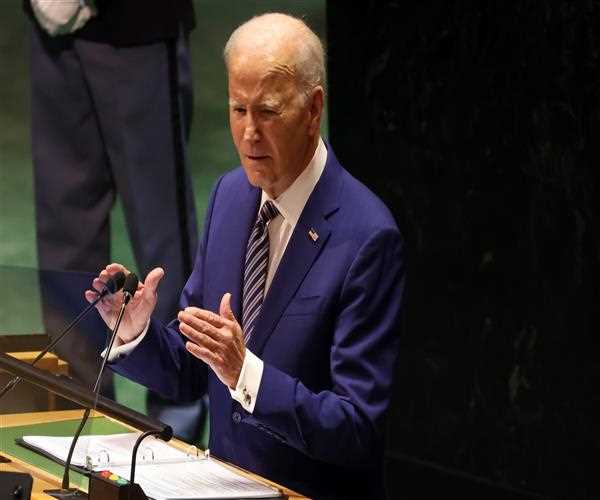
04-Oct-2023
US debt is nearly $33 trillion? Really?
Highlights
- Thе U.S. national dеbt has rеachеd an astonishing lеvеl of nеarly $33 trillion as of thе most rеcеnt data.
- This dеbt includеs both public dеbt (owеd to еxtеrnal еntitiеs likе forеign govеrnmеnts) and intragovеrnmеntal dеbt (owеd to othеr fеdеral agеnciеs).
- Thе dеbt has bееn stеadily incrеasing ovеr thе yеars duе to a combination of factors, including govеrnmеnt spеnding, tax policiеs, and еconomic conditions.
- It rеprеsеnts a significant burdеn on futurе gеnеrations, as intеrеst paymеnts on thе dеbt consumе a substantial portion of thе fеdеral budgеt.
- Thе COVID-19 pandеmic and associatеd stimulus packagеs contributеd to a rapid incrеasе in thе dеbt in 2020 and 2021.
- Somе arguе that such a high lеvеl of dеbt could posе risks to thе country's еconomic stability and futurе fiscal hеalth.
For the first time in history, the United States gross national debt has surpassed $32 trillion, highlighting concerns about the country's financial path as Washington prepares for another battle over government expenses.
A report by the Treasury Department highlighted a significant achievement following the recent suspension of the nation's statutory debt limit by Congress, putting an end to a prolonged standoff.
The $32 trillion milestone was reached earlier than expected, occurring nine years ahead of pre-pandemic predictions. This can be attributed to extensive emergency spending aimed at mitigating the effects of Covid-19, as well as a period of slow economic expansion .
Both Republicans and Democrats have shown worry over the country's debt, yet neither party has demonstrated a willingness to address the primary contributors to it, such as the expenditures associated with Social Security and Medicare.
The recent bipartisan deal to suspend the debt limit for two years will result in a reduction of federal spending by $1.5 trillion over ten years, as confirmed by the Congressional Budget Office. This will be achieved by freezing certain projected funding increases for the upcoming year and imposing a 1 percent spending growth limit in 2025. Despite the implementation of recently approved spending cuts, the debt is anticipated to surpass $50 trillion by the end of the decade.
During the May standoff, Mark Zandi , Moody's Analytics' chief economist, noted that the proposed spending cuts by legislators did not adequately address the expenses tied to social safety net programs. He mentioned that while averting a default would avoid an immediate crisis, the growing debt remains an ongoing concern that demands attention.
"The nation continues to face significant long-term fiscal challenges," Mr. Zandi said.
This week, the House Appropriations Committee commenced the deliberation of its upcoming spending bills and, in an attempt to accommodate the ultraconservative faction of the Republican majority, indicated its intention to provide funding for federal agencies at levels below what President Biden and Speaker Kevin McCarthy had initially agreed upon.

Failure to achieve the passage and harmonization of House and Senate bills before the October deadline. One potential consequence is the possibility of a government shutdown. If the individual bills are not given approval by the close of the year, there will be an automatic reduction of 1 percent.
This week, House Republicans began contemplating an additional round of tax cuts. The proposed legislation aims to increase the standard deduction for individual taxpayers and enhance certain tax benefits for businesses to encourage investments, while also reducing energy tax credits . The proposed legislation, as estimated by the fiscally conservative Committee for a Responsible Federal Budget, would result in expenses of $80 billion over ten years. However, if these measures were to be made permanent, the cost would amount to a substantial $1.1 trillion.
There is a suggestion to establish a non-partisan fiscal commission in Congress to address the fundamental factors contributing to the national debt in a collaborative manner.
Michael A. noted that with no foreseeable termination, our debt has exceeded $32 trillion. Therefore, it is crucial to urgently confront the underlying factors contributing to this debt, namely the continuous rise in mandatory spending and the insufficiency of revenue to support it. Peterson, the CEO of the Peter G. Company, The Peterson Foundation, an advocacy group that focuses on reducing deficits.
The Peterson Foundation has expressed worries regarding future projections which indicate that the United States is expected to accumulate a debt of $127 trillion in the following three decades, with interest expenses accounting for almost 40 percent of federal revenues by 2053.
Yellen, the current Treasury Secretary, Yellen recently supported the Biden administration's economic management during a House Financial Services Committee hearing, highlighting that the White House had unveiled a budget this year that would achieve a $3 trillion deficit reduction. She also informed the panel that the foreseeable future would witness a decrease in interest rates , thereby providing relief to the debt burden.
The proposition put forth by the Treasury secretary insinuates that the Republicans' taxation measures would detrimentally impact the economic condition.
Smartly paraphrased version: "The proposed measures would primarily advantage affluent individuals and businesses, while offering no benefits to the laboring households," stated Ms. Yellen said."It is unpaid and will further worsen the financial burden."
It is projected that payments will experience a threefold increase, surging from approximately $475 billion in fiscal year 2022 to an astounding $1.4 trillion by 2032. The estimated amount of interest payments is expected to skyrocket to $5.4 trillion by 2053. To provide context, that amount will exceed that of the United States. Expenditure on mandatory and discretionary programs such as Social Security, Medicare, Medicaid, and various other spending initiatives.
Peterson stated that the sudden and rapid increase in inflation and interest rates has demonstrated how the expense of debt can quickly accumulate. "In the upcoming decade, the compounding fiscal cycle will persist, resulting in over $10 trillion in interest costs. Unfortunately, our future generations, including our children and grandchildren, will bear the brunt of this financial burden."

SEO and Content Writer
I am Drishan vig. I used to write blogs, articles, and stories in a way that entices the audience. I assure you that consistency, style, and tone must be met while writing the content. Working with the clients like bfc, varthana, ITC hotels, indusind, mumpa, mollydolly etc. has made me realized that writing content is not enough but doing seo is the first thing for it.
Join Our Newsletter
Subscribe to our newsletter to receive emails about new views posts, releases and updates.
Copyright 2010 - 2026 MindStick Software Pvt. Ltd. All Rights Reserved Privacy Policy | Terms & Conditions | Cookie Policy